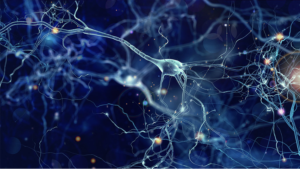
Source: Pavel Danilyuk
In recent years, due to the pandemic and other driving forces, the use of mental health services has increased dramatically. As a consequence, mental health services are facing a crisis of burnout and high staff turnover because of overwhelming demands. A question has surfaced about whether artificial intelligence could be used for therapeutic applications in mental health services to help accommodate this high demand. This article will outline several examples of artificial intelligence in use for mental health services – describing current successes, ongoing challenges, and potential opportunities for its wider use.
While there are ethical and social concerns surrounding the use of artificial intelligence in mental health services – for example, whether these services will be accessible to people of lower income – there are also numerous benefits, like expanding the ability to treat geographically hard-to-reach populations, using novel treatments and different approaches, improved patient response, and reducing the workload on physicians and mental health professionals1.
As a first example, consider AI techniques implemented in general psychiatry. Physicians have already started using AI for a variety of applications, including helping with dyslexia diagnosis2. Interestingly, some studies have found that patients may have a preference, or at least approve of, non-human therapists. For example, one study found that subjects preferred a virtual agent compared to a human counterpart because patients could self-direct the pace of information. Another advantage is virtual agents reduce embarrassment for patients and shame around asking for help1. The preference for virtual agents may not hold true in all contexts, but these results are nonetheless interesting.
Beyond their appeal to patients, there are questions of how accurate these algorithms are. Researchers are steadily improving diagnostic algorithms – combining different kinds of data and using different AI frameworks. In 2018, an algorithm was established that combined speech recognition and facial recognition to help evaluate whether a person has depression, achieving a predictive accuracy better than when either speech or facial recognition were used as inputs alone3. Other studies have tried using different AI methods, such as the support vector machine (SVM) approach, or deep learning, to predict Alzheimer’s disease early on. Different forms of algorithms may perform better in certain situations, depending on factors like the type and quantity of data used as input4.
Artificial intelligence opens up new possibilities for treating mental health. Though AI is slowly becoming better at imitating human patterns of thinking, there is still a long way to go for the development of applications and algorithms2. The more biological data is deposited in public databases, the more power there will be to train and improve AI algorithms2. Though promising, AI applications raise concerns – for example, whether AI algorithms are accurate and trustworthy enough to operate with physician supervision1. There are also broader economic concerns about the potential of AI to cause job displacement due to automation and/or to reduce the quality and extent of human interactions5.
References
- Fiske, A., Henningsen, P. & Buyx, A. (2019). Your Robot Therapist Will See You Now: Ethical Implications of Embodied Artificial Intelligence in Psychiatry, Psychology, and Psychotherapy. J. Med. Internet Res. 21, e13216.
- Tahan, M. (2019). Artificial Intelligence applications and psychology: an overview. Neuropsychopharmacol. Hung. Magy. Pszichofarmakologiai Egyesulet Lapja Off. J. Hung. Assoc. Psychopharmacol. 21, 119–126.
- Zhao, J., Wu, M., Zhou, L., Wang, X. & Jia, J. (2022). Cognitive psychology-based artificial intelligence review. Front. Neurosci. 16, 1024316.
- Lin, E., Lin, C.-H. & Lane, H.-Y. (2020). Precision Psychiatry Applications with Pharmacogenomics: Artificial Intelligence and Machine Learning Approaches. Int. J. Mol. Sci. 21, 969.
- Howard, J. (2019). Artificial intelligence: Implications for the future of work. Am. J. Ind. Med. 62, 917–926.
Related Posts
How the Bystander Effect on Security Robots can Hamper Law Enforcement
BigDog robots being tested under the supervision of a Boston...
Read MoreUniversality of the Face: New Research Points to a Shared Human Commonality in Emotional Expression
Figure 1: Examples of emotional expressions Source: Andrea Piacquadio from Pexels Raising...
Read MoreCOVID-19 and its Implications for Adolescent Mental Health
Covid 19 and Isolation (Source: created by author) Abstract The...
Read MoreThermophilic Life in Yellowstone National Park Challenges the Physical and Chemical Limits of Survival
Cover Image: Grand Prismatic Spring in Yellowstone National Park (Source:...
Read MoreThe Effects of Friends and Family on Daily Stress
Figure 1: This figure shows several of the different effects...
Read MoreDancing Neurons & Their Exciting Impacts
Figure 1: A network of neurons in the brain Source: Elizabeth...
Read MoreFelix Miyago






